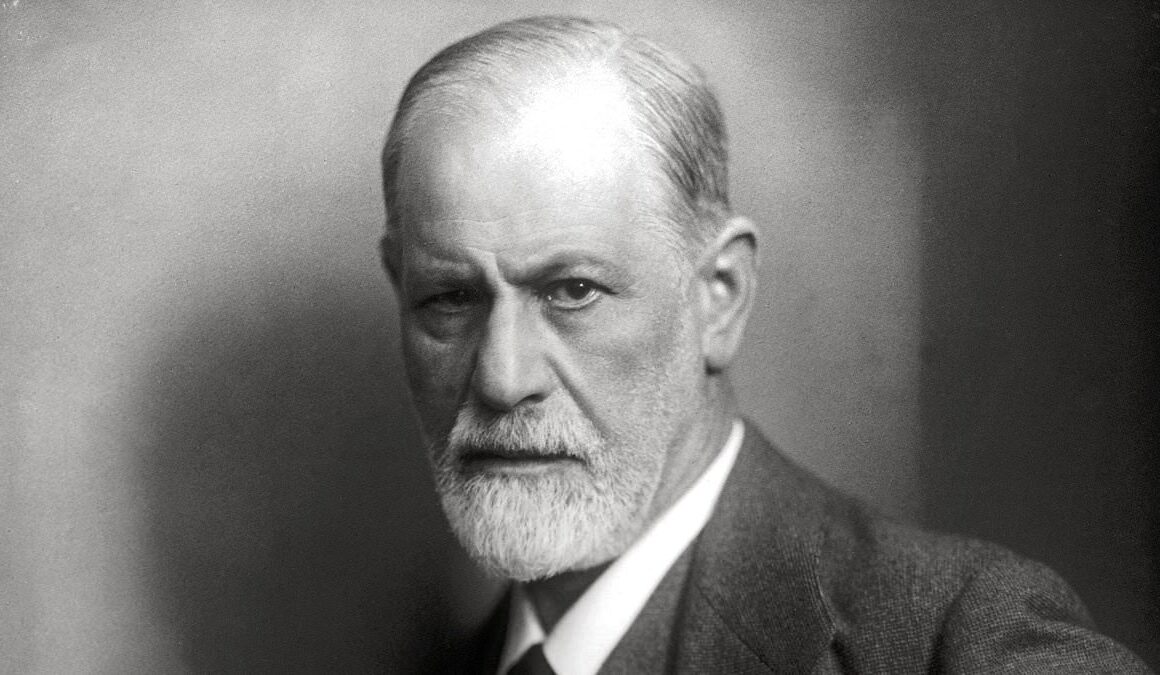Sigmund Freud did not believe that all humans’ suppressed feelings were due to erotic fantasies, according to a scholar who has uncovered the reason behind the popular misconception.
Following a re-examination of one of the psychoanalyst’s key works, The Interpretation of Dreams, Mark Solms revealed mistranslations have led to people getting the wrong impression of the Austrian’s views – which are often seen as controversial and outlandish.
Solms, a renowned South African psychoanalyst, will correct several errors in the revised English edition of the work and aims to challenge the misconception that Freud believed the erotic drive was the driving factor behind much of human behaviour.
He told The Guardian that Freud had a ‘very broad understanding of sexuality’.
‘For him, any activity that was pleasure-seeking in its own right – anything that one does for the purposes of pleasure alone, as opposed to practical purposes – was ‘sexual’,’ he said.

It has been revealed that the founder of psychoanalysis, Sigmund Freud, was not as sex obsessed as many people believe

One of Freud’s most widely recognised theories is the Oedipus complex – named after the Greek hero who had sex with his mother and murdered his father

Mark Solms, a renowned South African psychoanalyst, will correct several errors in a revised English edition of Freud’s The Interpretation of Dreams. Pictured: Solms attends Neuropsychoanalysis Foundation 2nd Annual Benefit at Private Residence NYC on November 5, 2009
In this way, a child sucking a dummy or playing with a ball were seen as Freud as ‘sexual’, in the sense that they were pure sources of enjoyment.
Solms believes that this theory extended the word ‘so far beyond common usage that it led to significant misunderstanding of his theories’.
Due to this, activities that were purely pleasurable but not ‘sexual’ in the commonly understood sense of the word, were pushed into the misleading category, he added.
The scholar claimed that the idea that everything was connected to libido is a misinterpretation of Freud’s theory and who he was as an individual.
Speaking of the artists who took Freud as an inspiration in their works, he said: ‘None of them understood that Freud was a rather conservative gentleman and shared none of their revolutionary social inclinations’.
According to the psychoanalyst, these artists also got Freud’s theories wrong.
‘His taste in art, too, was really very conservative. Freud described Dalí as a fanatic,’ he added.
One of Freud’s most widely recognised theories is the Oedipus complex – named after the Greek hero who had sex with his mother and murdered his father.
In Freud’s Interpretation of Dreams, the founder of psychoanalysis put forward the controversial psychoanalytic theory that young boys have a sexual desire for their mother and hostility toward their father.
These feelings are largely repressed because of the fear of displeasure or punishment by the parent of the same sex, according to the theory.
Such taboo theories have made him a controversial figure, but Solm aims to clear Freud’s name, saying: ‘There are some people who would rather see Freud forgotten than retranslated.
‘They would prefer it if he was airbrushed out of history.’
Solms’s entire revised edition, a 24-volume piece, was commissioned by the British Psychoanalytic Society to mark the 50th anniversary of the publication of the last segment of Freud’s works
It is set to be released in Britain at the Freud Museum in London on September 19, two days ahead of a special conference at University College London.









